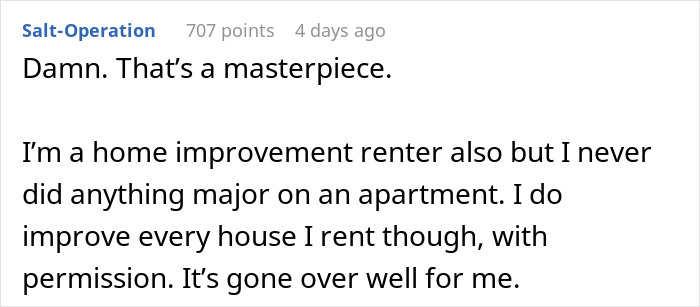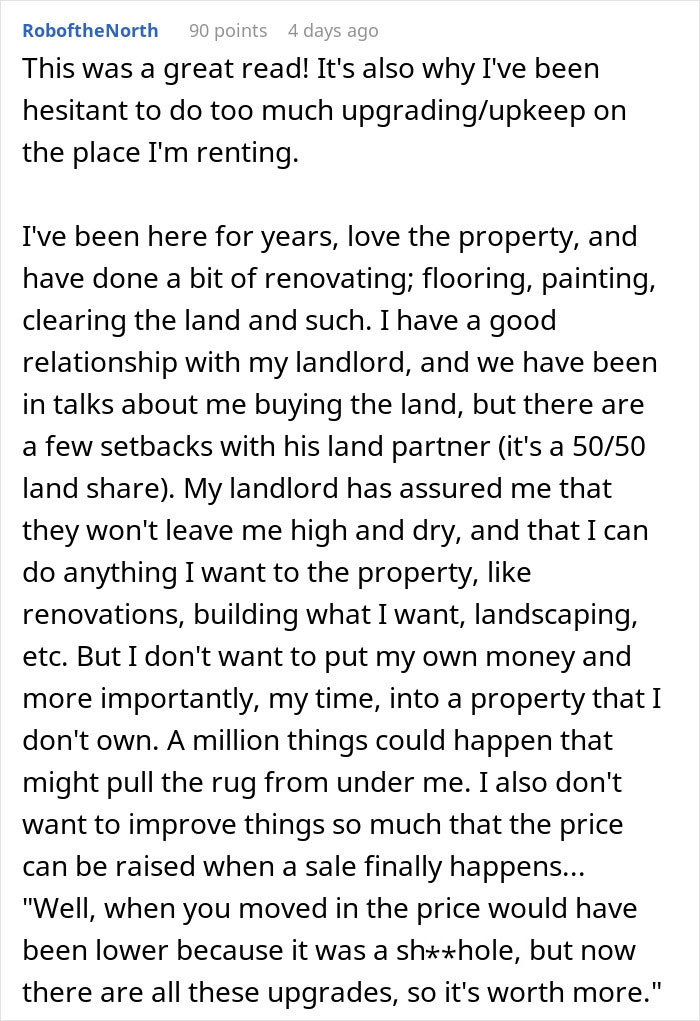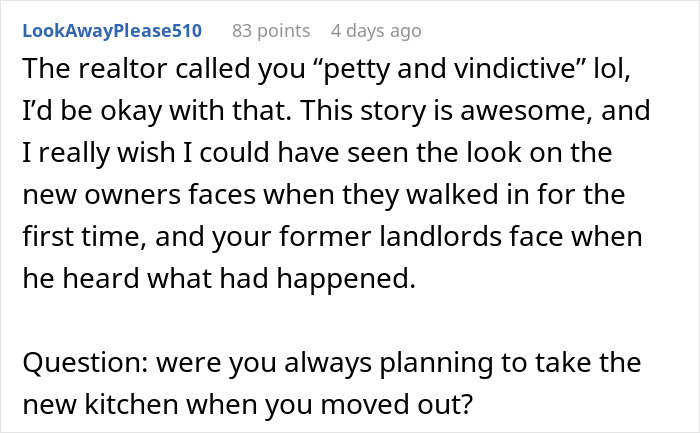To buy or to rent: the age-old question you find yourself grappling with once you start adulting. In the U.S., 66% of households own their home while 34% rent it. So, you could say that the majority of Americans think buying is the way.
But this man didn’t think so, and opted to rent. And when he renovated his rental’s kitchen, the owner started seeing dollar signs. Furious that the landlord went back on his word and was essentially kicking him out, the guy carried out perhaps the pettiest revenge of all time. He took all the improvements with him and left the new owners with a kitchen in all its former hideousness.
A guy renovated the kitchen in his rental condo, but it backfired when the landlord saw the results
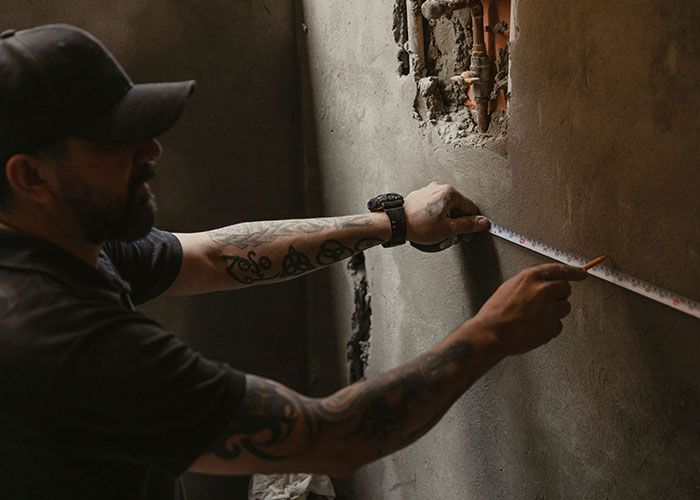
Image credits: Pablo Merchán Montes / unsplash (not the actual photo)
The greedy landlord decided he wanted to sell, but the renter hit him with an act of petty revenge for the ages






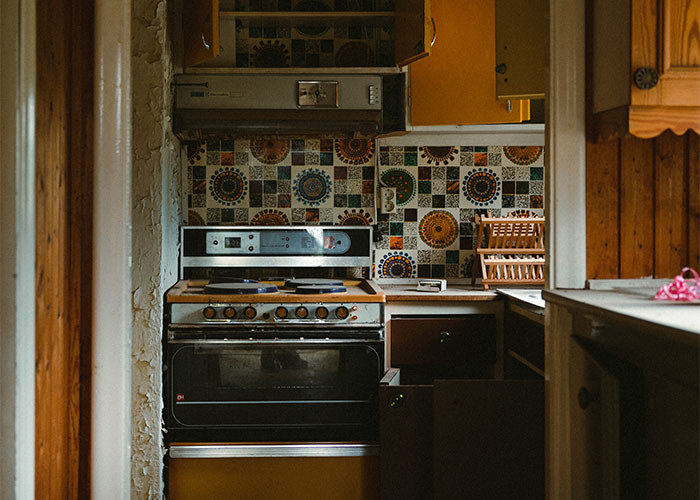
Image credits: Paul Volkmer / unsplash (not the actual photo)






Image credits: Getty Images / unsplash (not the actual photo)







Image credits: Maria Lupan / unsplash (not the actual photo)







Image credits: charlesdeluvio / unsplash (not the actual photo)




Image credits: IknowwhatIhave
For millennials, investing in renovating your rental is often the only option
In fact, it’s not so uncommon for millennials to invest in the places they’re renting. Housing experts claim that they’re the most screwed generation when it comes to homeownership. Its rates surpassed 50% in 2022 for the first time, signifying that most millennials, the oldest of whom are in their 40s now, have no other choice but to rent – perhaps forever.
Mercury Stardust, the author of “Safe and Sound: A Renter-Friendly Guide to Home Repair,” tells Business Insider that, ideally, renters shouldn’t put money into rentals. However, reality often forces them to spend their money on properties they don’t own.
“So many of us put money into our rentals because we are trying to make it feel like the warm, inviting space that we need in our life,” Stardust explains. “I think that should be a universal truth rather than something that only homeowners — which is now a growing select few — can experience.”
Millennials tend to put money into the things that make them happy now rather than investing in the future. Financial planner River Nice explains it as part of a unique millennial outlook. “A lot of personal finance for our generation is a motivation game,” they explained. “Like, ‘Yeah, this is awful, and I’ve got to find a reason that I want to keep getting up and doing it.'”
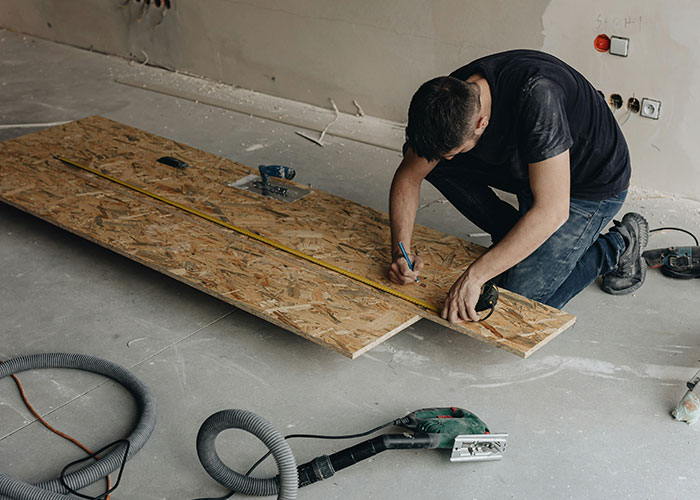
Image credits: Karolina Grabowska / unsplash (not the actual photo)
If you’re renovating the place you’re renting with your landlord’s permission, it’s always wise to get it in writing
Some people may find the thought of renovating a rental ridiculous. You don’t own the place, so what’s the use in upgrading it? But who among us doesn’t want to live in an apartment or a house that they like and find comfortable? When you’re experienced in making beautiful kitchens like the OP, why not invest some money and time into making your home a more beautiful place?
However, there are some things to keep in mind when you’re renovating a place you’re renting. Some people opt for non-permanent upgrades, like putting up light fixtures with Command strips, using peel-and-stick floor tiles and wallpaper, and installing Sproos – the shower systems for renters and DIYers.
If you’re taking on bigger projects like the OP, you’ll likely need the landlord’s permission. “Renters should get written permission from their landlord before making any irreversible alterations to the rental unit,” G. Brian Davis, co-founder of SparkRental, a property management software company, explains.
“When they make reversible changes, renters should restore the unit to its original state before they move out.” Ultimately, what a renter can and cannot alter depends on the terms of the lease. Usually, the landlord puts the no-nos in the rent agreement, even if they’re as minor as repainting the walls.
In some cases, the landlord might be willing to contribute to the renovations if they think it’ll significantly increase the property’s value. Lemonade Insurance writes that renters can negotiate: ask for a temporary rent reduction, discuss who’ll do the labor (maybe the landlord has vendors they prefer), and don’t expect the landlord to cover all the expenses.
Perhaps, if the OP put the renovations agreement with the landlord in writing, they would still have their beautiful kitchen and the apartment that they loved so much. Still, their genius pettiness is one for the books and will be hard to beat!

Image credits: Getty Images / unsplash (not the actual photo)
The OP gave people an example of what the before and after looked like

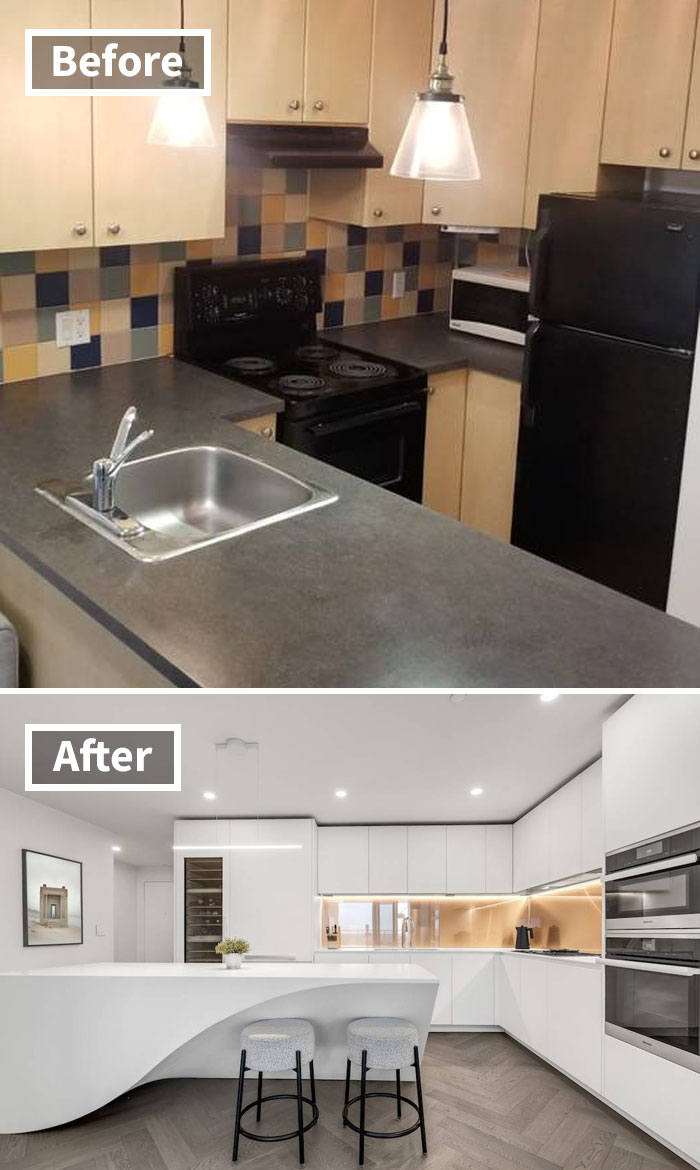
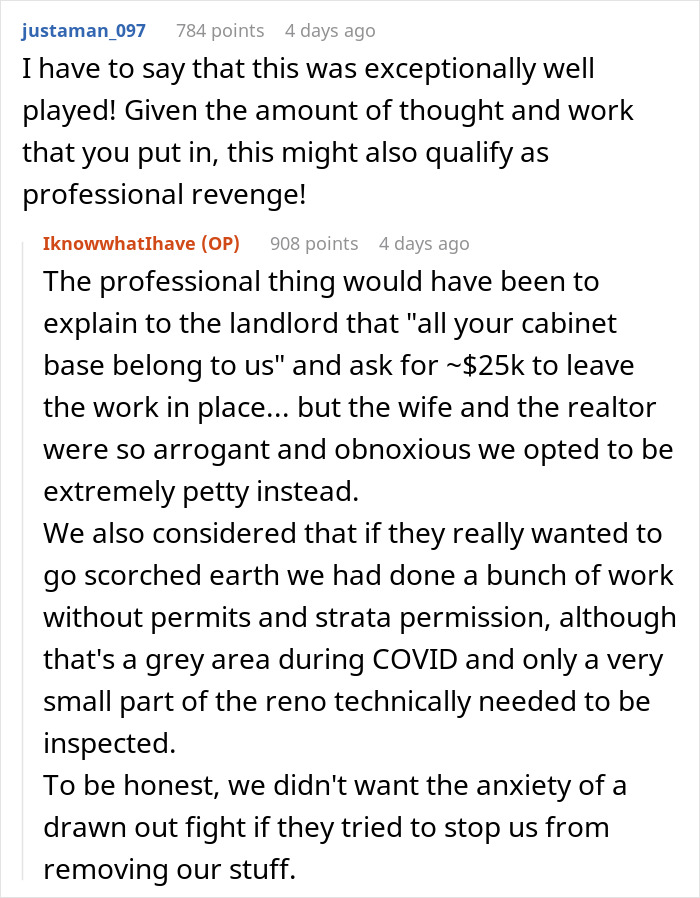

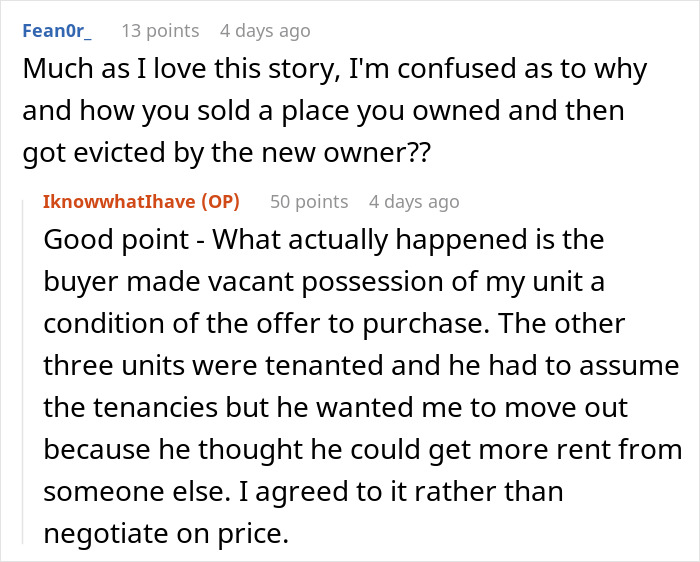
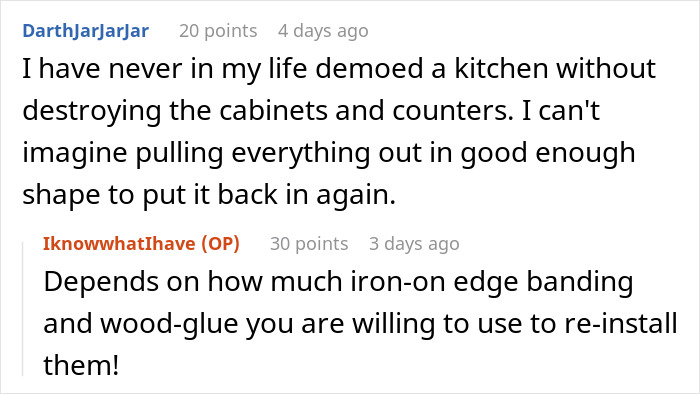
And the people were impressed: “This is Michelin star level of pettiness”


